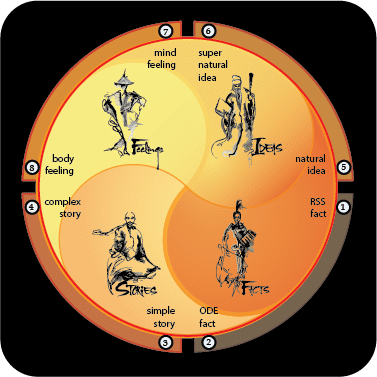Why is Asperger’s Syndrome Considered a Disorder?
To begin with, I have Asperger’s. I am also a therapist for close to thirty years. For most of these years, I’ve sat with people with Asperger’s every day. In each case, when I first meet them, I tell the person the same thing; that despite what anyone has told you, you are not broken. You have a minority personality.
“How did I get this minority personality?,” they ask. “Where did it come from?”
“It began to develop in your second year of life, when you were learning to talk. People who get Asperger’s become fascinated with hearing and repeating words. This makes them become mouth readers rather than eye readers. Mouth readers focus on where words come from. Eye readers focus on the place where emotions emerge.
Over time this altered focus causes the baby to immerse themselves in learning the dictionary meanings of words. Which is why they feel compelled to correct people who use words “too loosely.” As opposed to mainstream babies who focus on learning how words allow people to connect. So “how are you,” to an Aspie gets interpreted in the fussy sense; as, “tell me how you are.” Whereas “how are you” to a mainstream person gets interpreted in the fuzzy sense; as a greeting.
Eventually then, significant differences begin to appear. Medical people and helicopter parents call these differences, “symptoms.” Here, symptoms are anything which falls outside the bell of the bell-shaped curve of human personality. God forbid a child have his or her own unusual uniqueness. People might make fun of them.
By three, the real problems begin to emerge, as more and more people (including therapists) begin to pressure this little person to imitate social norms. Talk like this. Walk like this. Don’t say that. Make eye contact like this. Endless lists of rules. Over time, the baby begins to believe there are rules for every situation. Which is why, when a person with Asperger’s has to do something new, they panic and fall apart. And why they tend to blurt out the few things they feel they do know. How could a person who is constantly faking it act any other way? More important, how could they ever develop personal confidence, let alone a clear sense of themselves as a human being.
The thing to see of course is what imitating normal does to a person. Brain. Body. Gait. Gestures. Word usage. This pressure leaves nothing untouched. This is why discussions like “is it the amydala or vaccinations” frustrate the heck out of me. Chicken or egg. Body or mind. What difference does it make? In the end, all that matters is that your theories and therapies help the person.
Think this is all a bunch of nonsense? All you’d need to see is this. One time when the family of a person with Asperger’s first sees this “disabled” family member stop imitating norm. Gut wrenching crying. The tears of disbelief. And the smile on the Aspie’s face as they realize they’re not broken. They’ve just been imitating normal for their entire lives. And they have no clue who they are. And the path out of hell is simply have someone teach them how to learn to be themselves.
Finally, in case you’re interested, my escape from imitating normal was entirely an accident. My special interest generalizes to all human beings. Literally. I love learning each and every fractal pattern in human nature. No surprise, I also became a personality theorist.
